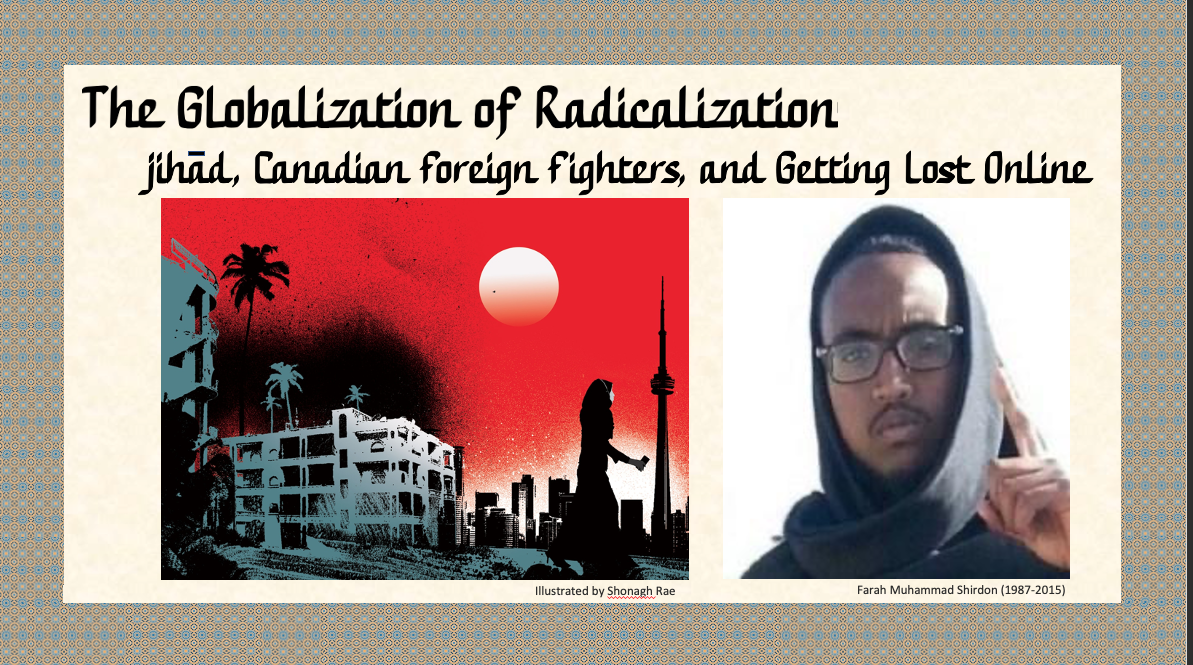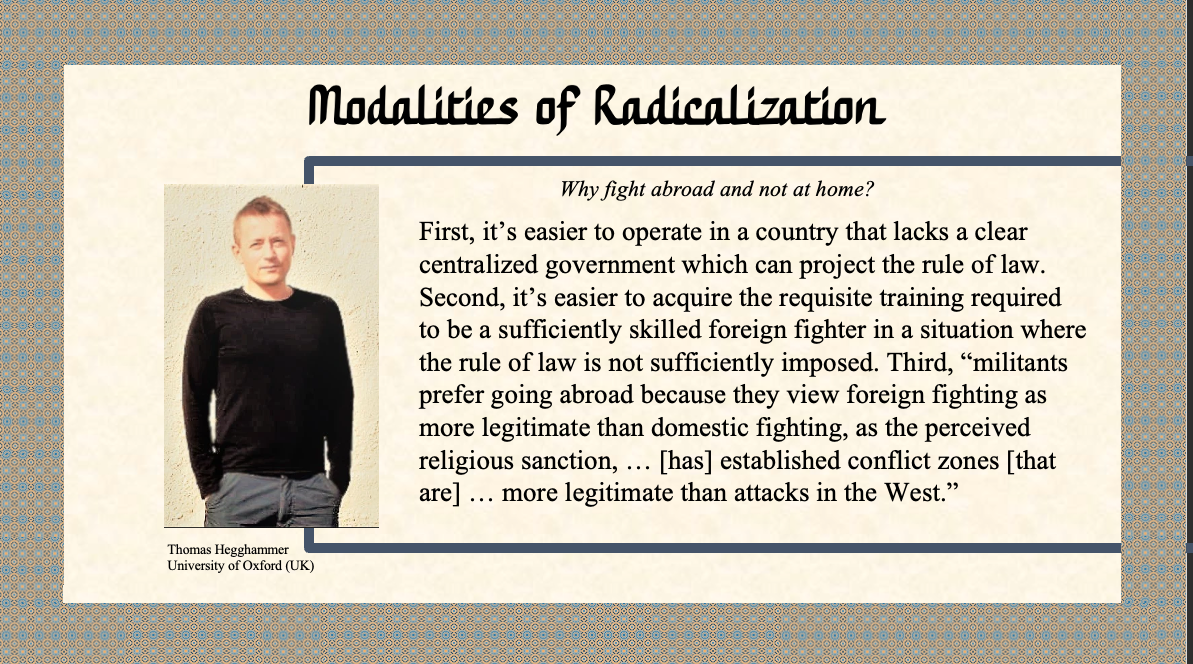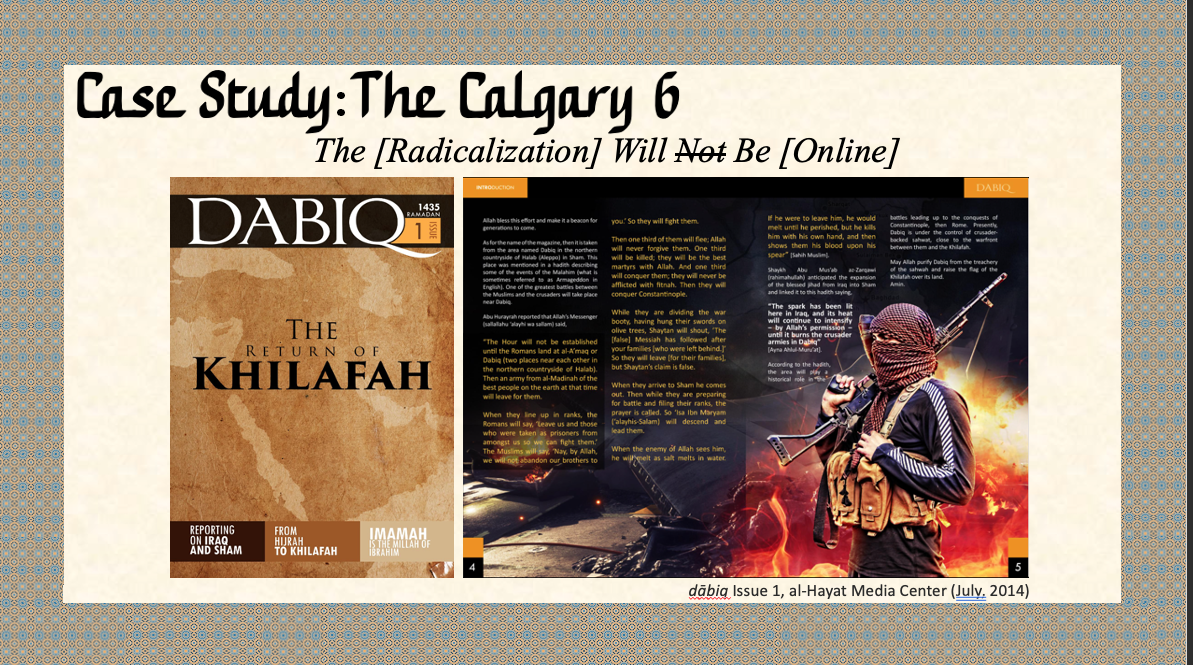In the fall of 2014, the Canadian news media was awash with stories of Canadian nationals (roughly 120 in total) electing to leave their families, jobs, and schooling – virtually every aspect of their lives behind to travel to Syrian to fight for the Islamic State (ISIS). Why would Canadians from all over the country, who were generally well educated, sufficiently integrated into their local communities and often not initially overtly religious choose to join ISIS? The globalization of the call for, and radicalization of foreign fighters has only escalated with the mass availability of jihadist literature, YouTube videos glorying ISIS, and dodgy message board shaykh’s acting as gate keepers to joining the fight overseas. Recalcitrant forces within contemporary jihādist groups have gone to considerable lengths to elevate specific Qur’anic narratives and ḥadīth interpretations to not only justify violence, but also to attempt to compel adherents to take on the mantel of jihād. A veritable cottage industry has grown up around the production of jihadist publications (specifically magazines), where lay Islamic scholars employ questionable ijtihād (independent reasoning) methods and draw on fringe jurist’s opinions that are well outside of existing ijmā (community consensus) as a means to foster a canonically derived justification for violence. The resulting production of lay scholarly reasoning are jihadists magazines, which are a core component in both the recruitment and radicalization of fighters. Therefore, the expressed goal of this project will be to conduct a micro-study on one group of jihadi hopefuls who all attended the same mosque in Calgary, Alberta. The paper will explore questions pertaining to: what jihadist literature were they reading; what other media were they consuming; how did they gain access to this material; and what social or community factors could have influenced their desire to fight for the Islamic State? The resulting output of this project will be a clear study of one jihadists cell path to joining ISIS, with some suggestions as to what the public could have done to redress this type of radicalization within a community context.




